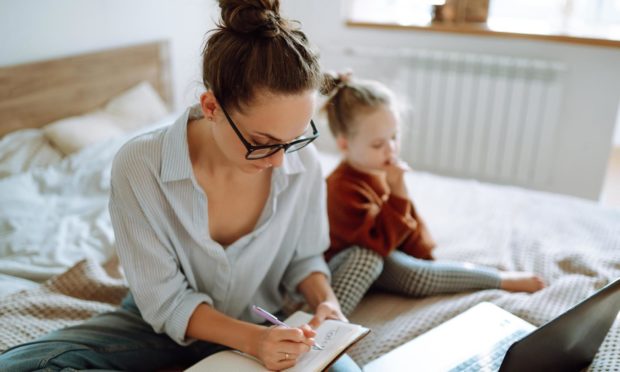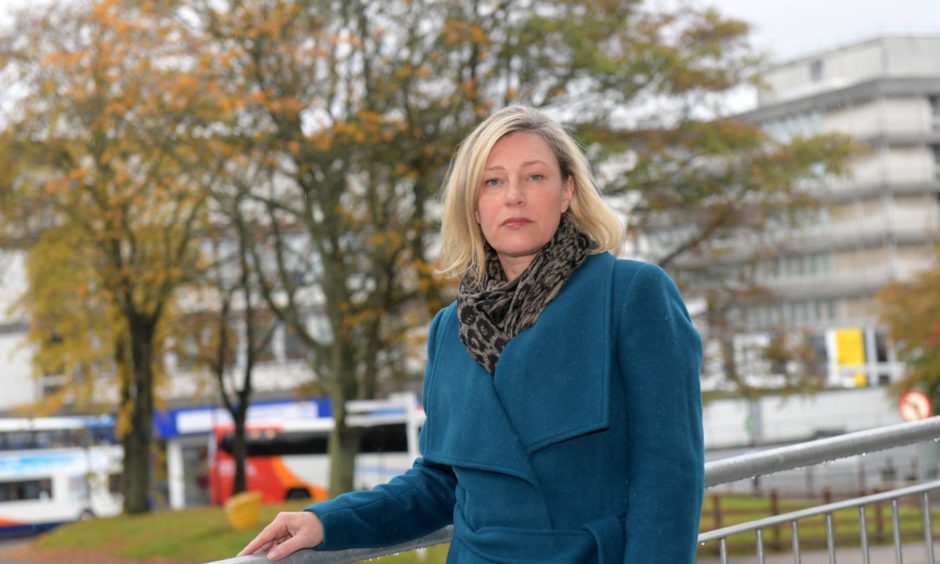MPs have warned the UK Government it risks “turning the clock back” unless it starts assessing the impact of the pandemic on women.
The report by the House of Commons women and inequalities committee said government economic support policies have “skewed towards men” and “overlooked” the “caring inequalities faced by women”.
The publication of the report comes ahead of a Holyrood members debate by Aberdeenshire East MSP Gillian Martin on Thursday to discuss the impact of Covid-19 on women and women-led businesses.
MPs on the Westminster committee have made more than 20 recommendations to government in the wake of the report, including making it easier for staff to get flexible working arrangements.
Ms Martin said the “unequal impact” on women during the pandemic is “significant”, with women still carrying out the majority of caring, home learning and household responsibilities.
The Aberdeenshire East MSP added: “This is why I am leading a debate later this week at the Scottish Parliament on this very issue.
“I’m delighted to say it has received cross-party support and clearly there is a groundswell of support on this issue given the amount of MSPs who have bid to speak on behalf of their female constituents.
“We’ve always known we must do more to balance the family life for both women and men with full-time work.
“We also know how important and valuable women are to the economy and workplace and we simply must do better to close the gap between the inequalities which have been made all too clear as a result of the pandemic.”
Working mothers
The women and equalities committee report states that women increased the number of hours devoted to childcare by more than men, putting an “additional burden on working mothers”.
It added that the government’s priorities for recovery are “heavily gendered in nature” and skewed towards “male-dominated sectors” such as construction, science and technology.
The committee also said it was “gravely concerned” by evidence provided to them of “potentially unlawful and discriminatory practices towards pregnant women and those on maternity leave” during the pandemic.
‘It’s a very difficult balance’
Mother-of-three Claire Kelly, from Alford, Aberdeenshire, runs her own business in remedial massage and talking therapies.
The 37-year-old said much of her work had to “stop point blank” as a result of the coronavirus restrictions, as she would normally visit clients in their homes and offices.
The self-employed business owner has had to move her work online while also caring for her three sons, Lachlan, 10, Adam, eight, and Jacob, six.
She said: “I have had to do more adaptations to what I do to fit around children, schooling and their wellbeing in general.
“It’s a very difficult balance and it’s not a balance I think any of us thought we’d be in the position of having to juggle.”
Burden
Claire agrees that the amount of childcare women do has been “overlooked” by government.
She added: “One of the reasons I became self-employed was because I knew I needed flexibility to be there to pick my children up and drop them off at school.
“I know there’s things like childcare but that’s incredibly expensive.
“The burden is something that falls on women a lot of the time and, going forward, I definitely feel like it’s something that should be considered more.
“A lot of the help that has been given out is more for people who are employed by somebody else, rather than running their own business.
“It all combines to create this storm that is just really difficult to get out of.”
‘Turning back the clock’
Committee chairwoman Caroline Noakes said the evidence has shown government policies have “repeatedly skewed towards men”.
She added: “The government must start actively analysing and assessing the equality impact of every policy or it risks turning the clock back.
“Our report sets out a package of 20 recommendations for change and a timescale.
“Taken together, these will go a long way towards tackling the problems and creating the more equal future that so many women — and men — want to see.”
In a series of recommendations, the committee said the government should:
- Legislate to extend redundancy protection to cover pregnant women and new mothers.
- Maintain increases in support including the £20 rise in Universal Credit.
- Review childcare provision to provide support for working parents and those who are job seeking or retraining.
- Reinstate gender pay gap reporting that was cancelled in March 2020 due to the pandemic.
- Review the availability of sick pay.
- Conduct an equality assessment of the support measures introduced during the pandemic, including the Job Retention Scheme.
The committee heard evidence from organisations including Maternity Action, Women’s Budget Group, the National Hair and Beauty Federation, the Trades Union Congress and the Professional Association of Childcare and Early Years.
‘Turn the tanker around’
Emma Ritch, executive director of Engender, Scotland’s feminist policy and advocacy organisation, said the women and equalities committee is the “latest in a long line of bodies to tell the UK Government that its approach to the economy is staggeringly harmful to women”.
She added: “Covid-19 has hit women’s jobs, incomes, and wellbeing hardest. But even before the pandemic, a decade of austerity saw women’s incomes depleted by savage cuts to social security, pension entitlements, wages, and services.
“The committee is calling on UK Government to turn the tanker around and invest in women’s jobs, women’s skills, and enable a more equitable share of unpaid work for men and women.
“With some of the some inequities entrenched by Covid-19 in Scotland, we also need to hear more detail about how Scottish Government will deliver a social and economic recovery for women.”
‘Unleash the potential’
A UK Government spokeswoman said: “We are safeguarding people’s jobs and incomes with economic schemes worth over £200 billion, including the Self Employment Income Scheme for the 1.7 million self-employed women in the UK.
“Covid-19 is prompting a culture shift with more people than ever before working flexibly, and the government wants to harness that as we recover.
“By doing so, we could see more equal sharing of care work by parents, and more flexibility from employers, enabling us to unleash the potential of everyone across the country.”



